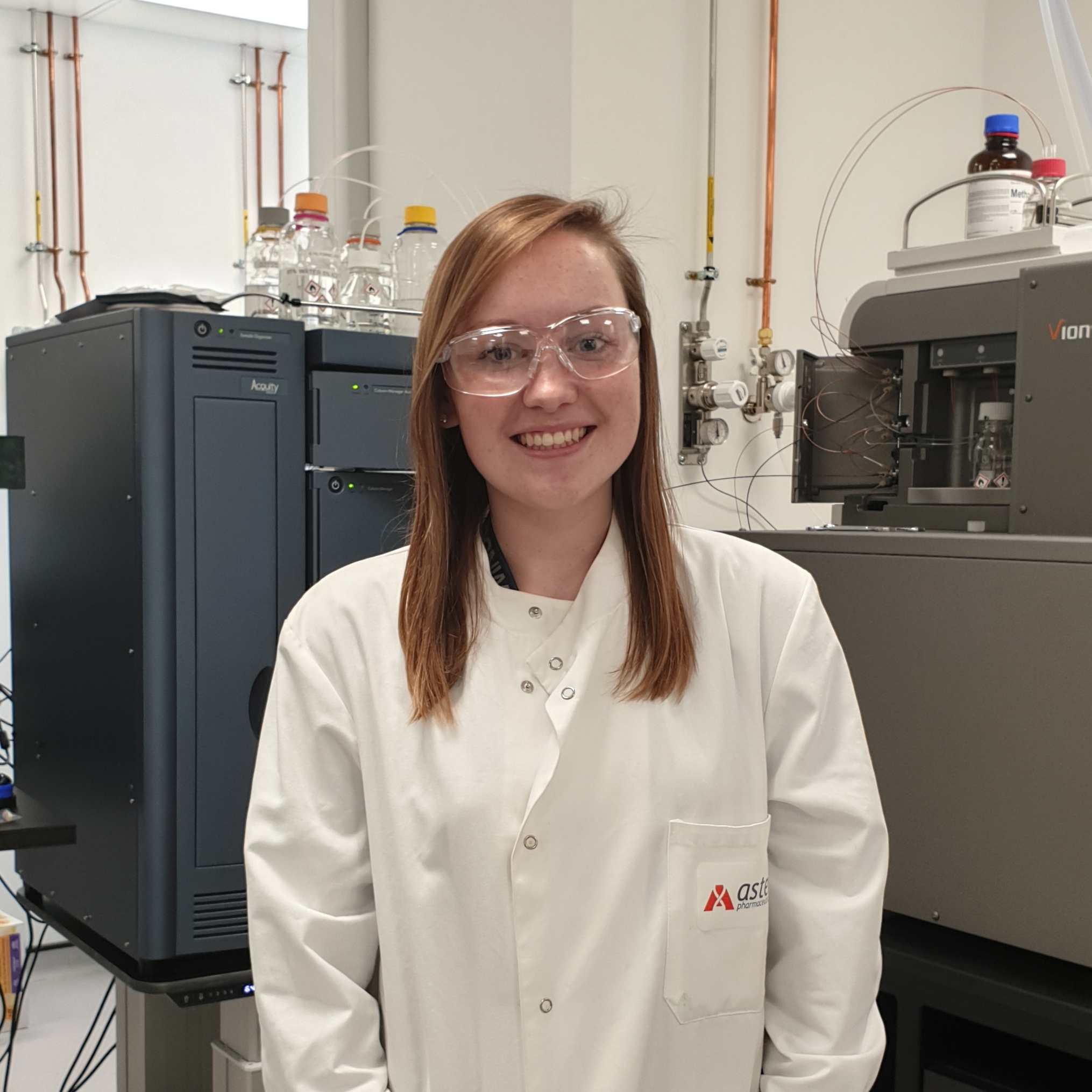
Jessie Stow shares her apprenticeship journey from Level 5 to Level 7.
Jessie Stow has worked her way up from a Level 5 to a Level 7 apprenticeship within the science industry and has been succeeding both professionally and academically. working for Astex Pharmaceuticals, Jessie has been well supported in an organisation who truly believe apprenticeships are a powerful way to develop good scientists and discovering the next generation of scientific talent.
We caught up with Jessie and Nicola from Astex Pharmaceuticals to hear more about their positive experience of apprenticeships with the University of Kent .
Jessie Stow, Research Scientist
I joined Astex as an apprentice in 2016. The work I do here is an essential part of my master’s degree in Drug Discovery and Development at the University of Kent. I devote one day a week to my university studies, which mostly involves online learning.
There’s a satisfaction to this way of hands-on learning because the university projects I complete may be of benefit to the company. Plus, I receive a range of support from my line managers, the colleagues in my team and from across the organisation.
As an apprentice, I feel as though I’m progressing in two ways. First, there’s my academic progression. This is my third apprenticeship: I’ve worked my way up from a Level 5 to a Level 7. Along the way I’ve developed more confidence and qualifications, and more understanding of the organisation. Then there’s my professional progression. When I started here my job title was ‘Apprentice’. I’ve since been promoted to Research Scientist.
Nicola Wilsher (PhD), Vice President, DMPK and Preclinical Development
In the drug discovery industry, our aim is to make breakthroughs that will ultimately benefit patients — but we are only as good as the calibre of our scientists. Apprenticeships offer a mix of academic and industrially focussed training and are a way to discover the next generation of scientific talent.
It’s certainly true that degree students in academic settings can receive a very good grounding in scientific research principles; but they will only truly understand how drug discovery works by being embedded in an organisation involved in it. That’s what an apprenticeship does. It equips people with the key skills and knowledge that employers are looking for, but that a degree course can’t offer on its own.
I passionately believe that this hybrid way of learning and progressing is an incredibly powerful way to develop good scientists. At Astex, we have an apprentice called Jessie Stowe who received a ‘highly commended’ award at the 2019 National Apprenticeship Awards in the Apprentice of the Year category. Jessie shows what an enthusiastic, young, bright scientist can bring to an organisation. By investing in her, we now have a highly trained member of staff in a senior role.




